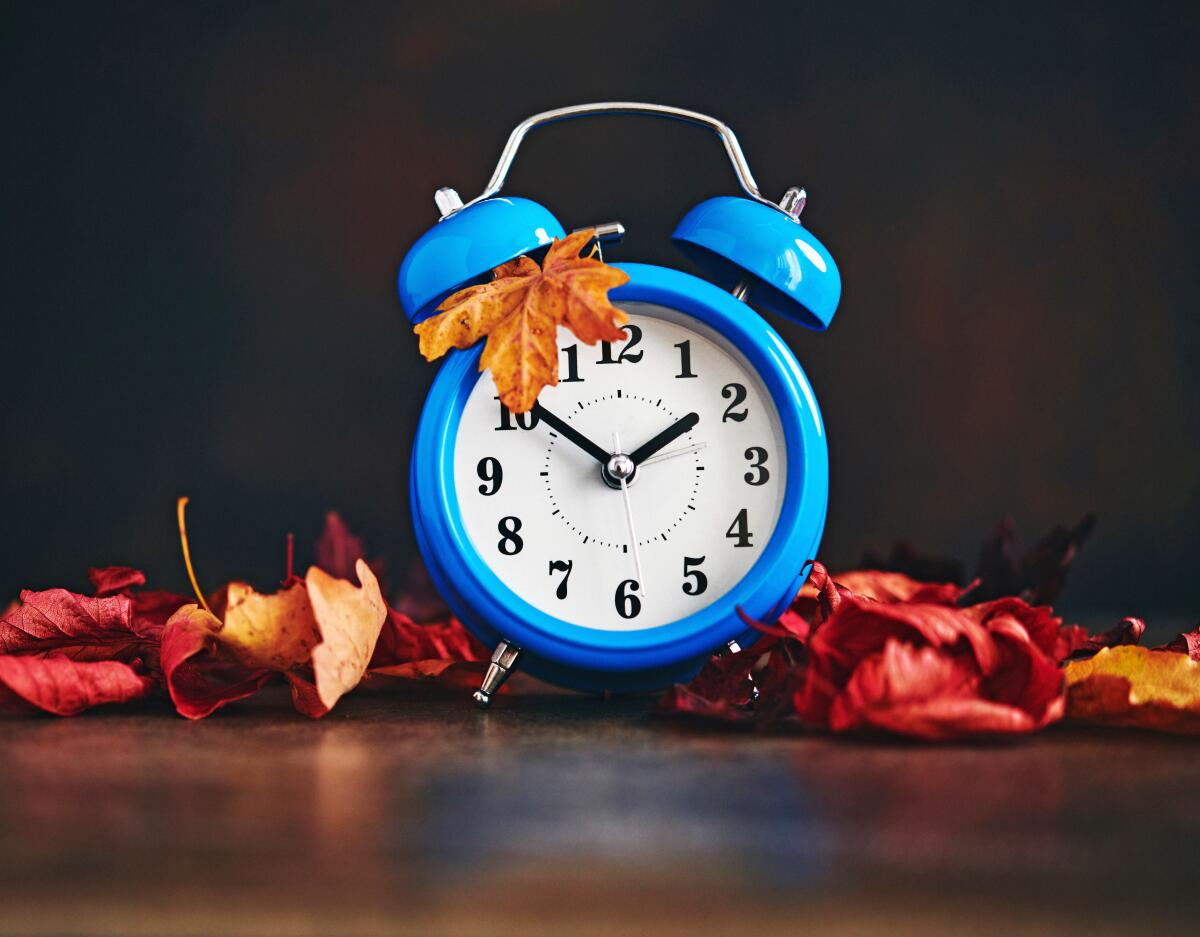Wake up! Here’s why you shouldn’t grab that extra hour of sleep this weekend

Sunday morning, daylight saving time bestows its final gift, after all those sunlit summer evenings: We fall back, into an extra hour of sleep.
“Isn’t that a luxury? But unfortunately, it’s not lasting,” said Dr. Alon Y. Avidan, director of the UCLA Sleep Disorders Center. Also, it can throw off the subsequent sleep schedule of anyone who already has trouble dozing off or doesn’t get the necessary seven to eight hours per night.
Someone already drowsy or irritable during the day shouldn’t take this weekend’s time change as a license to sleep in or go to bed later, he said, because they’re only shifting their poor sleep habits.
Such an abrupt change — even just an hour — can wreak havoc on our circadian rhythms, the 24-hour cycles of living beings that determine sleeping and feeding patterns, and can be affected by stimuli including sunlight and temperature.
Avidan and others suggest some tips to follow, so you’re not tripped up when you fall back:
- Though it may be too late for this weekend, Avidan says to ease into the time change — go to bed and wake up 15-30 minutes later in the days preceding, and move mealtimes later so they’ll be in sync come Monday.
- Later to bed and later to rise also means more light exposure when people wake up, which — along with social cues, like a later dinner — “can have a positive effect on their circadian patterns,” Avidan said.
- Avoid caffeine at least six hours before going to bed, detach from computer, TV and phone screens, and lay off alcohol, which, instead of knocking you out, can act as a stimulant and make sleep less restful.
- Reset all your clocks. True, our phones and other smart devices will update to standard time automatically, but search your house to make sure you haven’t overlooked any more-primitive timepieces — the analog clock hanging on the wall or the digital ones on the stove or coffeemaker. And double-check — that device you think is dumb may have reset itself and outsmarted you into setting it two hours back. Also, don’t forget the car’s dashboard clock; one wrong display can throw off your entire schedule. Thankfully, most people no longer have to contend with that blinking bête noire, the VCR.
Finally, Avidan said to use this extra hour to fix sleep habits now and establish better patterns that will help in the spring, when daylight saving begins.
“Oftentimes in April, when we lose an hour, of course the circadian issues are a lot more profound,” he said. For example, single-car crashes and heart attacks increase during that week. “That’s when people are vulnerable.
“This is an opportunity for people to be mindful how easy it is to transition,” Avidan said. “It’s easier to adapt when you get an extra hour. Make the change right now.”
More to Read
Sign up for The Wild
We’ll help you find the best places to hike, bike and run, as well as the perfect silent spots for meditation and yoga.
You may occasionally receive promotional content from the Los Angeles Times.










